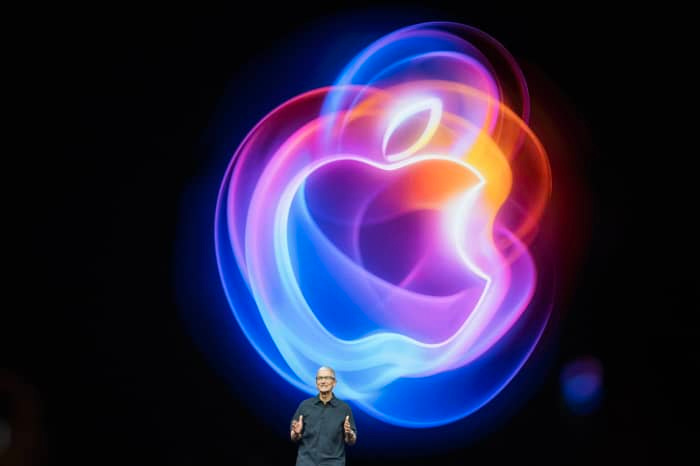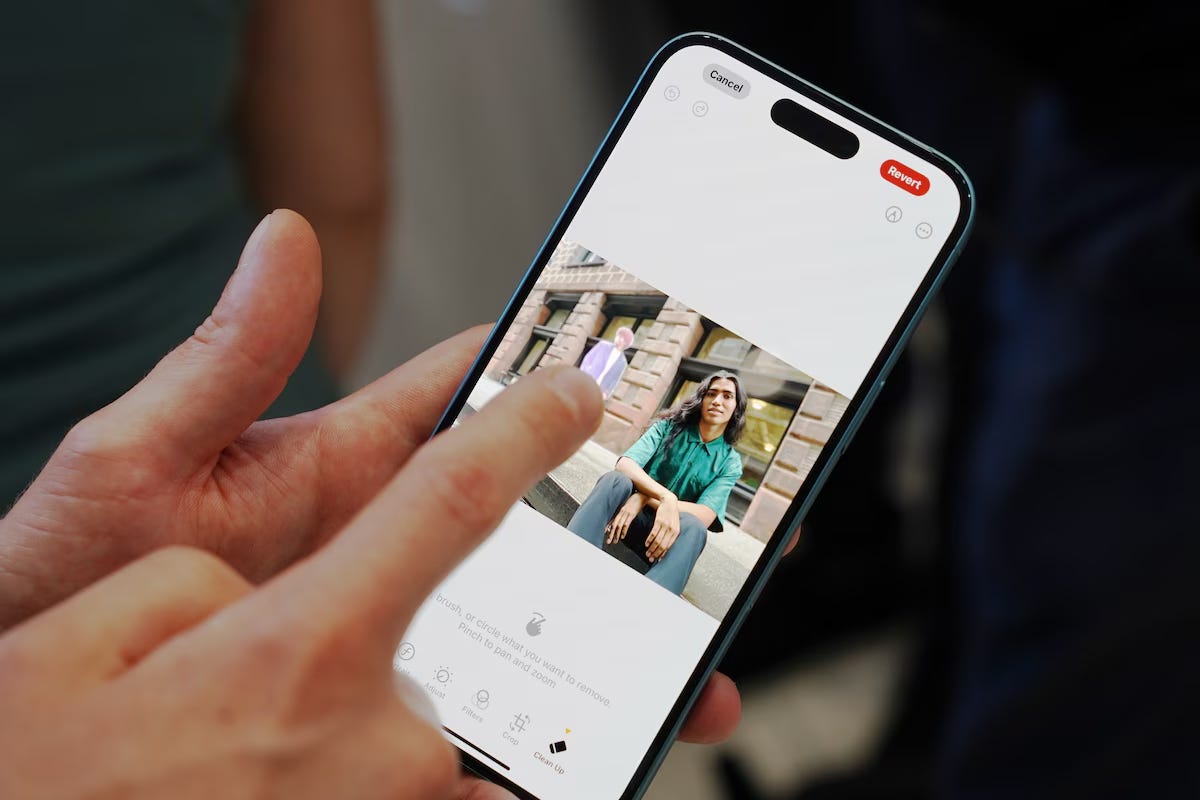AI: Apple & Google ready with AI powered phones & devices. RTZ #475
...AI redesigned iOS & Android operating systems, with AI optimized devices for billions of users in 2025 and beyond
The stage is set for the main act.
Apple’s walked through their AI upgraded iPhone/Apple Watch/AirPods lineup, at their annual September 9 event in Cupertino. The the new AI optimized devices, ready to release Apple’s ‘Apple Intelligence’, ship September 20th.
With Google having also done the same with its AI-optimized Pixel phones, and Gemini Live powered Android OS being unleashed soon, the stage is now set for the ‘battle’ of the AI-optimized smartphones. And both companies are ready to go head to head with AI Voice with Apple’s Siri, and Google’s Gemini ‘Live’, in this AI Tech Wave across their smartphones OS platforms now.
As the WSJ outlines in “Apple Unveils an AI iPhone”:
“The company, which has faced slumping sales in its signature product, released the iPhone 16, with an upgraded Siri, AI text editing and photo-recognition tools”.
“Appleon Monday introduced a new generation of iPhones that put AI at the forefront of the device’s operating system, a test of consumer appetites for such tools.
“The new tools—called “Apple Intelligence”—include an improved Siri voice assistant and a variety of text-generation and photo-editing capabilities, and they will be compatible with the new iPhone 16 and the iPhone 15 Pro. Apple announced most of the AI functions in June.”
The general reactions to the new hardware and software itself was upbeat, with official reviews coming when the devices ship. But the core thing to keep in mind is that the new ‘Apple Intelligence’ features will roll out over the coming few weeks.
And it’ll take a while before we get apples to apples comparisons of Apple vs Google AIs on the respective platforms (pun intended). And there are new AI optimized ‘hearing aid’ features in the AirPods 2 and ‘Sleep Apnea’ features in the new Apple Watches that will require regulatory FDA approvals over the coming months as well.
It’ll take even longer for Developers on both iOS and Android to ramp up AI features for their apps and distribute them. And longer still for users in the billions on both platforms figure out their utility and form new regular habits around these AI products and services.
So it’ll be well into 2025 that we get a good sense of how new AI features on locally optimized, ‘Small AI’ model driven smartphones, start to make a difference to mainstream users.
Before then, both Google and Apple have work to do to make their versions of AI more reliable and safe. It’s still early days for both Google Gemini and Apple Intelligence.
The timing of the Apple Intelligence will not be immediate with the launch of iPhone 16 in the hands of users by September 20. That will have the next version of iOS 18 out of the box. But the first Apple Intelligence features to roll out will come with the iOS 18.1 release soon. As Axios outlines in “Which Apple AI features are coming when (and where)”:
“Apple's generative AI features are coming in waves, with some arriving in October, others later this year and another set due sometime before the middle of next year.”
“Why it matters: Those considering buying an iPhone 16 for the AI features will want to be clear-eyed about Apple's timeline, which also varies by region and language.”
Lots of specific details on AI features and timelines in the piece.
And contrary to Axios’s piece “Apple's slow AI rollout threatens iPhone upgrade cycle”, I disagree that this rollout over months will impact the upgrade cycle. If anything, Apple went out of its way to highlight the aggressive trade-in incentives from its Carrier partners, and Apple itself, for users to upgrade their iPhones over the coming months. Trade-in prices were $800 and higher for iPhone 12 and above, four generations back from the current iPhone 16.
Apple know it needs its two billion plus users to upgrade to iPhone 15 Pro and up, since the Apple Intelligence features need the more powerful AI GPUs, memory and other sensors to do the cooler AI things. Both from first-party Apple apps and their army of millions of third party App Developers.
This is a race that Apple knows it has to win vs Google Android, Microsoft/OpenAI and others for the Attention of Developers.
So even though the specific AI features and capabilities will take bit more time to roll out, it’s important to remember that other companies, from OpenAI/Microsoft, to Google to Meta to Nvidia and others, are also seeing delays in their latest and great AI software and hardware. They’re all get they’re latest and greatest out a bit later than they’d all like, at various times in 2025.
Also, there will be teething pains as these AI products and features are released. Apple will likely have its issues here as its peers.
As an example, see the Washington Post’s Geoffrey Fowler notes in “IPhone 16 is all about Apple Intelligence. Previews show it can be kind of dumb.”:
“The new iPhone is all about artificial intelligence. But in tests of its prerelease software, it does an uncomfortable amount of making things up.”
“Apple on Monday unveiled the iPhone 16 to be released Sept. 20 with one marquee feature: Its A18 chip is “designed for Apple Intelligence,” the company’s still-unfinished artificial intelligence software. It’s supposed to do things like summarize messages, write emails and clean up photos.”
“So will Apple’s AI be worth it? Testing a prerelease version of the software, I’ve found it sometimes helpful — and sometimes laugh-out-loud weird.”
He goes onto provide anecdotal examples of where Apple’s beta AI software misses the mark. And adds:
”Apple says the AI software I’ve been testing, the third developer preview version of iOS 18.1, isn’t finished and isn’t necessarily representative of the final product.”
But Apple Intelligence does have potential as he notes:
“In some ways, Apple Intelligence is a smarter and likely safer way to bring AI to a mass consumer product than we’ve seen from other Big Tech companies. It’s not just an all-knowing chatbot grafted onto your phone. At its best, Apple Intelligence integrates its capabilities into existing apps in small ways to speed along tasks.”
“I found it helpful in many ways. For example, in the Photos app, Apple Intelligence lets you use more natural language to find photos from a particular occasion. Or you can highlight a part of a picture you find distracting, and it will use generative AI to make it disappear.”
“The way you’ll most notice Apple Intelligence at work is trying to summarize your mountains of incoming information.”
And of course Apple as I’ve noted, has a relative advantage on ‘AI Trust at Scale’, given its market leading position on mainstream consumer Privacy and Safety. Given the efforts it takes to make sure that both is large and small AI models (LLMs and SLMs) process user data as much as possible on local devices.
And if all the capex being expended in the billions is going to see sustained AI adoptions by mainstream consumers worldwide, that are then able to be monetized at Scale.
But both smartphone platforms are now at the starting gate.
Apple and Google are both ready to ramp mobile apps into the ‘AI Era’ in this AI Tech Wave. We’ll just have to wait a couple of years at least to see the traction and the metrics. Stay tuned.
(NOTE: The discussions here are for information purposes only, and not meant as investment advice at any time. Thanks for joining us here)











